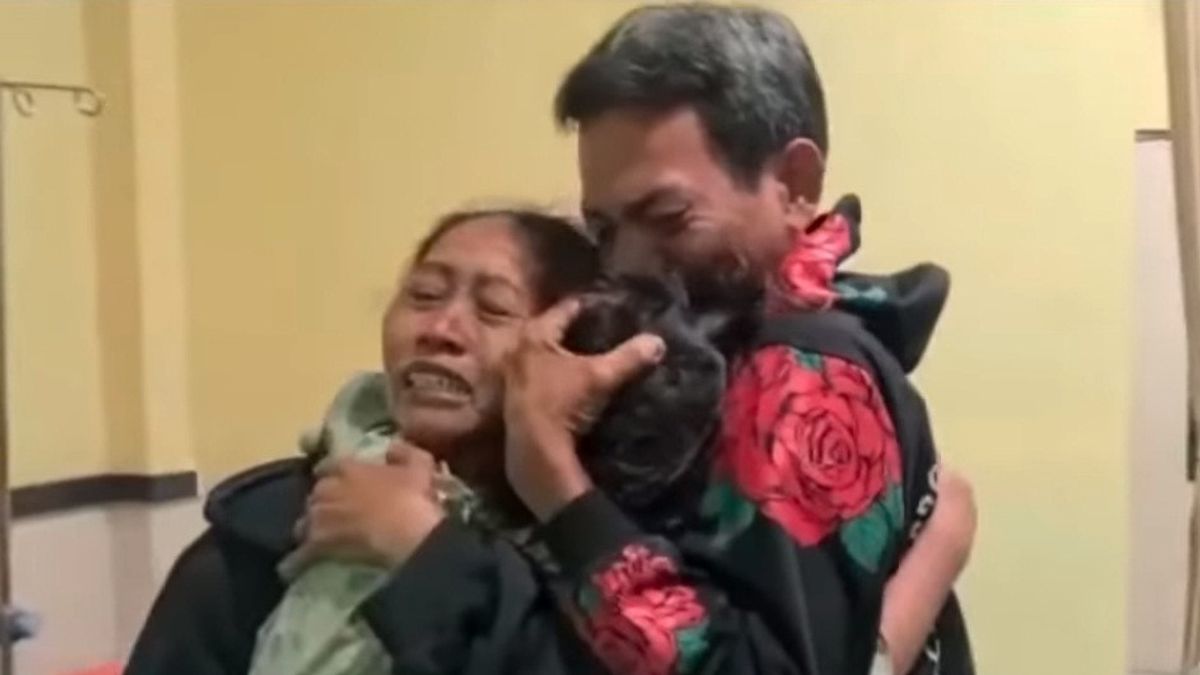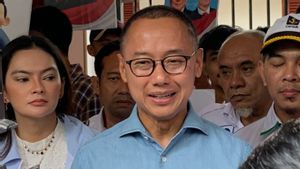JAKARTA Oni cried with emotion when she met her daughter, Malika Anastasya (6) at the Kramat Jati Police Hospital on January 3, 2023. She immediately carried and continued to wipe Malika's head. TL, the father also couldn't hold back his tears and seemed to kiss his daughter's face several times. Malika is a victim of child kidnapping that occurred on Mount Sahari, Central Jakarta on December 7, 2022.
Oni and TL are grateful to still be able to see Malika again after becoming a victim of kidnapping on December 7, 2022. The Central Jakarta Metro Police managed to find Malika in the Ciledug area, Tangerang on January 2, 2023 night.
"I, the mother of Malika, would like to thank the police for their hard work in finding my child. I can't say anything, I can only say thousands of thanks," Oni said while kissing her son in a video circulating on social media on January 3.
Although happy, from the results of the examination by the psychiatric team of the Kramat Jati Police Hospital, East Jakarta, the incident traumatized Oni and TL and had to get psychological assistance.
Likewise for Malika, the police are intensely monitoring her psychological development after 26 days of being a victim of child kidnapping. Trauma, according to Central Jakarta Metro Police Chief Kombes Komarudin, is clear.
6-year-old children are taken to travel a long time from their parents. What was initially comfortable in the family environment, for several days had to live moving, sleeping in any place. This is certainly quite stressful. The health team, including psychiatrists, play a very important role in recovering," he told the media crew on January 3.
After experiencing a traumatic event, both children and adults will show certain symptoms of behavior as a reaction to their traumatic experience.
The most notable thing, said Prof. Irwanto and Hani Kumala in the book "Understanding Trauma: With Special Attention to Children's Periods", is that the body's hyperarusal and mind's reactions will become very alert. So there are constant panic and fear reactions.
The person concerned became easily offended, often became very aggressive. This very sensitive situation did not only occur at the time the person concerned was conscious, but also during sleep. He was easily surprised by unexpected (sound or events) things," said Irwanto and Hani.
If not addressed, it will have bad consequences for health and social relations. Repeated memories of traumatic experiences can develop into depression and symptoms.
In children, the impact is more dangerous. It can affect the child's personality in further developments. Children have the need and vulnerability to experience psychological trauma one and a half times greater than adults. This is because children still depend on others and do not have the ability to solve various problems.
"If in adults a traumatic experience causes emotional problems and symptomatic behavior, then behavioral children formed due to traumatic experiences can be embedded forever in the child's personality," wrote Irwanto and Hani.
Types of reactions that usually appear in children aged 0-6 years, such as:
Overcoming it, parents or families must continue to accompany. According to Irwanto and Hani in the book, there are five keywords that can be used as a guide:
Knowing and trying to understand changes in children's behavior.
Listen to children's stories and complaints about their traumatic experiences. Pay attention to the way children think about these events and their views on themselves, whether to blame, give up, can't do anything about them, or other answers. If the child considers a traumatic event as a misunderstanding or because of delinquency, the companion must help correct.
If necessary, do it by showing attention and affection. If the child shows symptoms such as stress, stop the question. If you also experience this event, be aware of your own emotional reactions. Look for help from others if necessary," explained Irwanto and Hani.
Elevating children to talk about their traumatic experiences in a supportive and monitored atmosphere. Follow the flow of children's conversations, don't force your own will. Don't avoid topics that are being discussed by children.
Help the child to pay more attention to the strength in him and the support in his environment. Increase him with various activities that will reduce emotional pressure. Invite children to think about the best strategy to maintain or create a positive spirit.
For parents/assisters who are also involved in trauma or who may experience mental and physical fatigue because they provide assistance, they must be introspective of their own mental state.
The English, Chinese, Japanese, Arabic, and French versions are automatically generated by the AI. So there may still be inaccuracies in translating, please always see Indonesian as our main language. (system supported by DigitalSiber.id)








